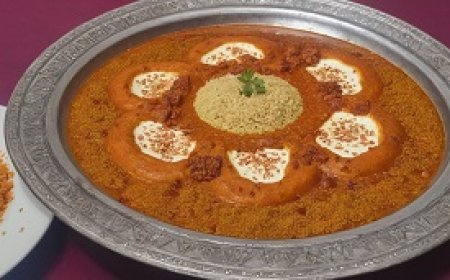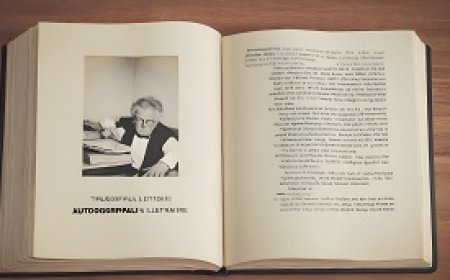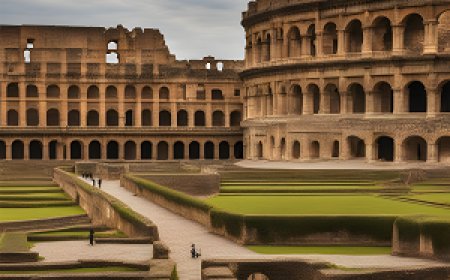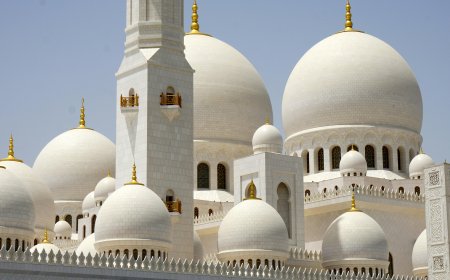Funeral rituals across different civilizations
Funeral rituals are an integral part of human heritage, with these rituals varying and details differing from one culture to another. In some civilizations, funerals take the form of solemn ceremonies bringing together family and relatives to bid farewell to the deceased and offer support to their family, while in other cultures, funerals involve religious customs centered around prayer and contemplation on the concept of life after death. Regardless of the specifics, funeral rituals reflect the beliefs and cultural values of peoples and serve as a means of expressing sorrow and solidarity in the face of losing loved ones.
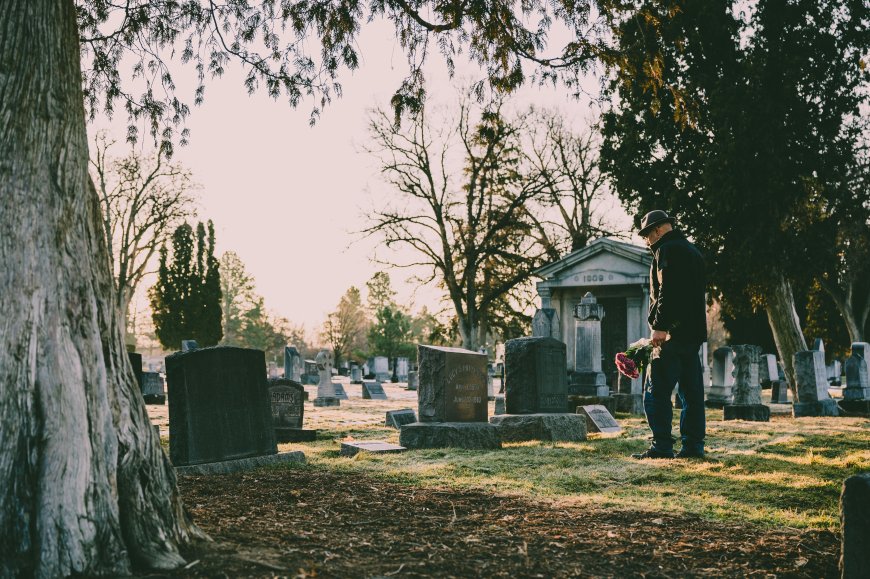
Funeral rituals are an integral part of human heritage, with these rituals varying and details differing from one culture to another. In some civilizations, funerals take the form of solemn ceremonies bringing together family and relatives to bid farewell to the deceased and offer support to their family, while in other cultures, funerals involve religious customs centered around prayer and contemplation on the concept of life after death. Regardless of the specifics, funeral rituals reflect the beliefs and cultural values of peoples and serve as a means of expressing sorrow and solidarity in the face of losing loved ones.
Funeral rituals across different civilizations
The history of funeral rituals extends deep into human history, where these rituals were an integral part of the social and spiritual life of various civilizations throughout the ages. It is evident that funeral rituals have evolved and changed with the development of societies and the shifting of cultures.
In ancient times, funeral rituals took on a grand and elaborate form, celebrating the deceased and showcasing the power and wealth of the family or tribe. With the evolution of religions and the emergence of major religions such as Hinduism, Judaism, Christianity, and Islam, funeral rituals changed to align with religious beliefs, incorporating prayers, religious readings, and honoring the teachings of the faith.
In some cultures, such as ancient Greece and Rome, there were specific rituals associated with funerals, such as placing coins in the mouth of the deceased to cover the costs of their journey to the afterlife. In the Middle Ages, funeral rites became more elaborate, with the development of practices such as prayers and funeral processions.
Despite the changes that have occurred in funeral rituals throughout the ages, the primary purpose of these rituals has not changed much. They still aim to honor the deceased, provide support and comfort to their family and loved ones, as well as directing prayers and wishes for the soul's eternal rest, highlighting the importance of funeral rituals as a cultural and spiritual element in human life.
Funeral rituals and cultural expression
Funeral rituals are considered an important element of cultural expression, as these rituals reflect the values and beliefs of different peoples and cultures regarding death and the afterlife. Funeral rituals vary greatly from one culture to another and are influenced by religious, social, and historical factors.
In some cultures, funeral rituals take on a solemn and traditional form, where official funeral ceremonies and processions are held, attended by family, friends, and the community as a whole. These rituals may include recitations of prayers and religious hymns, readings of eulogies and condolences, and sometimes the distribution of food to attendees as a sign of respect and appreciation for the deceased and their family.
On the other hand, some cultures exhibit funeral rituals that express joy and celebrate the departure of the deceased individual, where parties or gatherings known as "funeral wakes" are organized, featuring music, dance, and positive memories of the deceased's life.
Funeral rituals manifest as diverse and rich cultural experiences, highlighting the deep relationship between humans and death. They demonstrate how people express concepts of loss, sorrow, and contemplation in the face of death in various and multifaceted ways, making them an important element in shaping the cultural identity of each society.
Funerals in religions
Funerals in religions constitute an important aspect of religious and cultural practices across various religions around the world. These funerals include distinctive rituals that express the beliefs and spiritual values of each religion, aiming to guide the departed soul and provide support and consolation to their relatives and loved ones.
In Christianity, funeral rituals typically include the funeral prayer and farewell ceremonies, which are held in churches. During these rituals, passages from the Holy Bible are read, and prayers are offered for the repose of the deceased soul and the consolation of their family and loved ones.
In Islam, funeral rituals include the funeral prayer (Salat al-Janazah), where the deceased's body is washed, shrouded, and a special prayer is held for them in the mosque known as the funeral prayer, where the deceased is bid farewell and prayed for mercy and forgiveness.
In Hinduism, funeral rituals vary according to regional traditions and sects, but generally involve cremation of the bodies, often conducted on the banks of sacred rivers like the Ganges, accompanied by religious ceremonies, prayers, and recitations.
Each religion features unique funeral rituals that express the beliefs and spiritual values of its followers, reflecting religious spirit and social solidarity in the face of death, making them an important element of cultural and religious expression in different civilizations.
A deep understanding of funeral rituals in global cultures
A profound understanding of funeral rituals in global cultures requires a comprehensive study of the traditions, beliefs, and values surrounding the concept of death and farewell in those cultures. It becomes evident that funeral rituals reflect the deep relationship between humans and death, highlighting the religious and cultural interaction of humans with this vital and influential phenomenon.
In certain cultures, funeral rituals are characterized by contemplation and silence, expressing grief and farewell in quiet and reflective ways. Whereas in other cultures, funerals take on a form of celebration and commemoration, reviving the memory of the deceased in colorful and joyful ways.
Funeral rituals in global cultures depend on various factors, including religion, family traditions, geographic environment, and history. In some cultures, funeral rituals include specific ceremonies focused on providing support to the deceased's family, while in others, celebrations are more elaborate and involve many participants.
Understanding funeral rituals in global cultures is complex and rich, as it reveals the core values and beliefs of those cultures through these rituals. By deeply studying these rituals, researchers and enthusiasts can grasp the multiple dimensions of humanity and its diversity, as well as appreciate the cultural and spiritual values associated with death and farewell around the world.
The spirituality of grief and solidarity
The spirituality of grief and solidarity reflects deep aspects of funeral rituals in various cultures, where these aspects are evident in the expression of sorrow and empathy for the loss and void left by death in the lives of departed loved ones. The spirituality of grief is manifested in funeral rituals through crying, contemplation, and mourning for the deceased, which is an expression of deep emotional loss and pain.
In many cultures, solidarity is strongly evident during funeral rituals, as members of the community gather to support the family and relatives of the deceased, offering condolences and assistance in coping with their loss. This solidarity is an integral part of the spirituality of funerals, reflecting unity and mutual support among community members in times of crisis and adversity.
Through the shared experience of grief and solidarity in funeral rituals, strong bonds are formed among members of the community, enhancing a sense of belonging and social cohesion. Additionally, these rituals provide an opportunity to offer emotional and moral support to grieving families, promoting solidarity and social bonds within the community.
In this way, the embodiment of the spirituality of grief and solidarity in funeral rituals represents an essential aspect of cultural and spiritual expression for humanity, reflecting respect and appreciation for life and death, and highlighting the strong human connections that unite community members in the face of hardships and tragedies.
Prayer and meditation
Prayer and meditation are essential components of funeral rituals in many cultures and religions around the world. Prayer serves as a means of communicating with the departed soul, seeking mercy and forgiveness for them, while meditation provides a time for reflection and contemplation on the meaning of life and death, as well as offering condolences and comfort to the deceased's family.
In Abrahamic religions such as Christianity and Islam, funeral rituals include a special prayer for the deceased. In Christianity, this prayer involves reading from the Holy Scriptures and seeking mercy and forgiveness for the deceased, while the Quran and specific supplications are considered important parts of funeral rites in Islam.
In Hinduism, funeral rituals include prayer, meditation, and recitation of supplications, as family members and loved ones gather to seek mercy for the departed soul and offer support to the family.
In addition to prayer, funeral rituals may involve periods of meditation and quiet reflection, where participants contemplate the meaning of life and death, reflect on memories and experiences of the deceased, and offer emotional and moral support to their family and loved ones.
Considering these aspects, prayer and meditation emerge as vital and spiritual components of funeral rituals, contributing to guiding the departed soul and providing support and comfort to their family, while also providing an opportunity for reflection and contemplation for funeral participants.
Traditions that transmit memory across generations
Traditions that transmit memory across generations constitute an essential part of funeral rituals in various cultures, as they contribute to commemorating the deceased and solidifying their place in the memory of the family and the community. These traditions serve as a means of passing down heritage and cultural values from one generation to another, ensuring the continuity of social and spiritual bonds between generations.
In some cultures, funeral traditions include passing down stories and narratives about the deceased, their accomplishments, and sacrifices, which helps in constructing cultural identity and fostering a sense of belonging for the family and the community. Additionally, these traditions are documented through poetry, literature, music, and visual arts, making them an integral part of the cultural heritage of the people.
Traditions that transmit memory across generations contribute to strengthening family ties and promoting solidarity among family members, as they unite in sharing memories and empathy in the face of loss. On a broader social level, these traditions contribute to building collective belonging and enhancing unity and mutual support in societies.
In this way, traditions that transmit memory across generations are a vital part of funeral rituals, as their effects extend not only to honoring the deceased but also to reinforcing social bonds and passing down cultural values and traditions to future generations.
Summary
Funeral rituals consist of a set of practices and ceremonies that extend across different civilizations and vary according to traditions and cultures. These rituals reflect human interaction with death and the farewell to deceased loved ones. Funeral rites typically include prayers, meditation, and commemorations for the deceased, as well as funeral or cremation ceremonies, along with social gatherings that bring together family and friends to offer support and condolences. This diversity in funeral rituals embodies the cultural and religious diversity of humanity and the strong bonds that connect individuals to the concept of death and departure.
Sources
1. Funeral Rituals in Various Cultures - Article from National Geographic:
2. The History of Funeral Rituals Across Civilizations - Article from History.com
3. Funeral Rituals Around the World - Article from World Religions
What's Your Reaction?



























